
On the occasion of Vietnamese Entrepreneurs' Day (October 13), reporters of the News and People Newspaper (Vietnam News Agency) had an interview with businessman Nguyen Hong Phong, General Director of Tien Nong Agricultural Industry Joint Stock Company, Vice Chairman of Thanh Hoa Province Business Association about this issue.
Sir, after 5 months of implementing policies and legal documents following the "compass" of Resolution 68, how has the business community benefited?
It can be said that the birth of Resolution 68 is a "breakthrough of breakthroughs" in both perception, thinking and action, creating more new development motivations for the private economy ; opening up more equal and transparent opportunities for the business community. Inherent bottlenecks have also been "named and shamed" and practical, effective and thorough solutions have been provided to remove them.

The viewpoints and contents of Resolution 68 have contributed to protecting the legitimate rights and interests of enterprises and entrepreneurs; ensuring that the economic zones compete equally with other economic sectors in accessing business opportunities and economic resources, especially capital, land, technology, human resources, data and other legitimate resources of the country.
One of the things I appreciate most about Resolution 68 is the determination of the Party and the State in creating an equal, transparent and stable business environment. Looking back at my own development journey with Tien Nong, I see more clearly that with the right policies, private enterprises can absolutely grow strongly and contribute to the country's economy.
We do not simply do business, but also carry the mission of "Sustainable Agriculture - Civilized Countryside - Modern Farmers", accompanying Vietnamese farmers on the development journey.

As the “captain” of a private enterprise, a pioneer in science and technology (S&T) in Thanh Hoa province; and at the same time taking on the responsibility of Vice Chairman of the Provincial Business Association, you once emphasized the barriers in the legal framework. So what are these specific limitations, sir?
From the practical activities of science and technology enterprises and the business community, it is possible to identify 5 major limitations in the legal framework. That is the slow legislative cycle, meaning that many guiding documents are outdated as soon as they are issued. For example, the 2005 Law on Electronic Transactions, before being amended, is outdated compared to cross-border e-commerce, fintech (financial technology), blockchain (blockchain). And it will take until 2023 for the National Assembly to pass the Law on Electronic Transactions (amended).
Currently, the sandbox is only being piloted in fintech (Decision 942/QD-TTg in 2021). Other areas such as high-tech agriculture, AI, digital healthcare, etc. do not have a testing framework. In addition, there are rigid and inflexible regulations.
That is, many new technologies are not listed, making it difficult to register and commercialize. For example, many enterprises producing agricultural biological products face difficulties because they are not listed, forcing them to register as “new fertilizers”, spending many years testing from the beginning.
Another difficulty for science and technology enterprises is that there is no independent agency to regularly assess the impact of new technology on society and the law.
We propose an “adaptive and predictable” legal framework for Vietnam, focusing on a group of solutions to establish a multi-sector sandbox system (testing mechanism). Each sandbox has a clear testing period (6 - 18 months), along with assessment indicators (KPIs) on economic - social - environmental efficiency. After testing, the management agency needs to make a decision to commercialize or amend the law.
For example, in Thanh Hoa, a digital farming model using humidity sensors, spraying drones and blockchain for traceability has been tested but has encountered difficulties due to the lack of a legal corridor for agricultural data. If there is a sandbox, this model can be deployed on a large scale, reducing production costs by 20-30%.
The legal framework should focus on fundamental principles of consumer protection, data security, and transparency, rather than on specific technologies that quickly become obsolete. This is in line with the experience of the UK and the Netherlands, where general principles allow for coverage of business models that have not previously existed. For example, in agriculture, it is sufficient to stipulate “ensure biosafety standards and traceability”, rather than listing specific technologies.
The Association also proposed the establishment of a Center for Technology Impact Forecasting and Assessment. The interdisciplinary center (under the leadership of the Ministry of Science and Technology, in coordination with the Ministry of Justice, Business Associations, and Research Institutes) could start with a pilot scale in three areas: AI, high-tech agriculture, and renewable energy, and then expand. In particular, all legal documents related to innovation must be reviewed at most every 18 months. The review is not just “on paper”, but based on evidence from the sandbox, business feedback, and real data. Allow for quick adjustments by Decree or Circular, based on practical data from the sandbox and business feedback.
For example, the Law on Electronic Transactions (2005) took nearly 18 years to be amended, while e-commerce grew by over 20% per year. If there had been a regular review mechanism, this gap would have been significantly shortened.
So what should be the incentive mechanism for businesses to participate in testing new technologies, in terms of credit, tax and legal support, sir?
In the credit sector, it is necessary to support businesses in borrowing capital at interest rates 1-2% lower than the market; exempt and reduce taxes during the trial period; provide legal support for businesses to receive advice and licenses faster. In addition, the State needs to recognize and communicate successful models as "typical cases" for replication.
The business community needs to proactively propose legal initiatives, provide testing data and commit to complying with the principles. The Association plays a role as a bridge between practice and policy, proposing a list of areas that need sandboxes and providing legal support for businesses to test. Currently, Israel has a technology startup support program with a funding level of 40-50% of testing costs, in return, businesses share data with the State to perfect the law. Vietnam can refer to this model.
Our private enterprise team is clearly aware of our mission of responsibility to improve the quality of life of the people, contributing to making Vietnam a strong and prosperous nation by 2045.
Thank you very much!
Source: https://baotintuc.vn/kinh-te/ky-vong-nhat-quan-thuc-thi-khung-phap-ly-nhu-he-dieu-hanh-quoc-gia-20251010151549462.htm



![[Photo] Unique Phu Gia horse hat weaving craft](https://vphoto.vietnam.vn/thumb/1200x675/vietnam/resource/IMAGE/2025/10/10/1760084018320_ndo_br_01-jpg.webp)
![[Photo] Ho Chi Minh City is brilliant with flags and flowers on the eve of the 1st Party Congress, term 2025-2030](https://vphoto.vietnam.vn/thumb/1200x675/vietnam/resource/IMAGE/2025/10/10/1760102923219_ndo_br_thiet-ke-chua-co-ten-43-png.webp)


![[Photo] Opening of the World Cultural Festival in Hanoi](https://vphoto.vietnam.vn/thumb/1200x675/vietnam/resource/IMAGE/2025/10/10/1760113426728_ndo_br_lehoi-khaimac-jpg.webp)

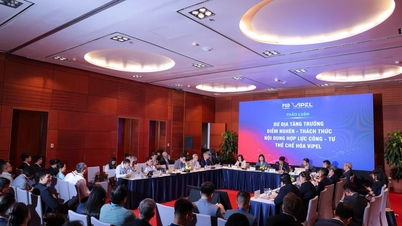




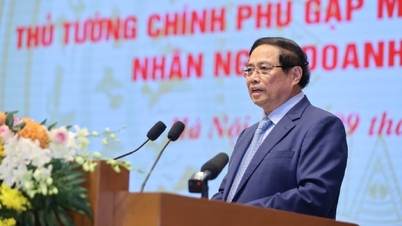

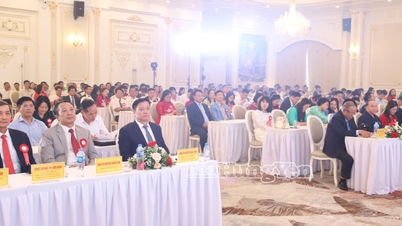













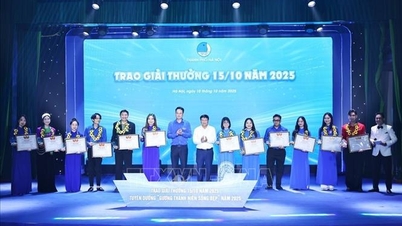





















































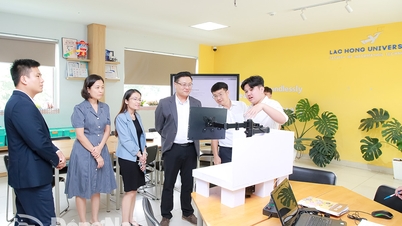

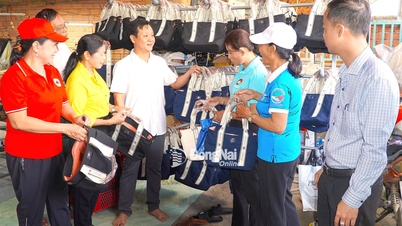
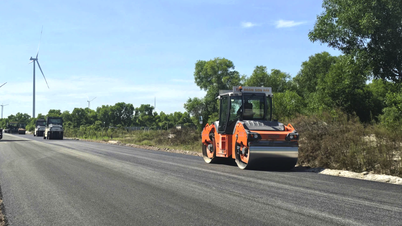
















Comment (0)